Logistics is the endurance challenge
In our conversation with Dries de Love, the Executive Vice President of Radial Europe, we delved into the fundamental principles guiding Radial’s success. Dries shares insights into how his sporting background influences his leadership approach. He emphasizes the importance of company culture, which empowers people to learn from mistakes, innovate, care for each other, and prioritize customer satisfaction.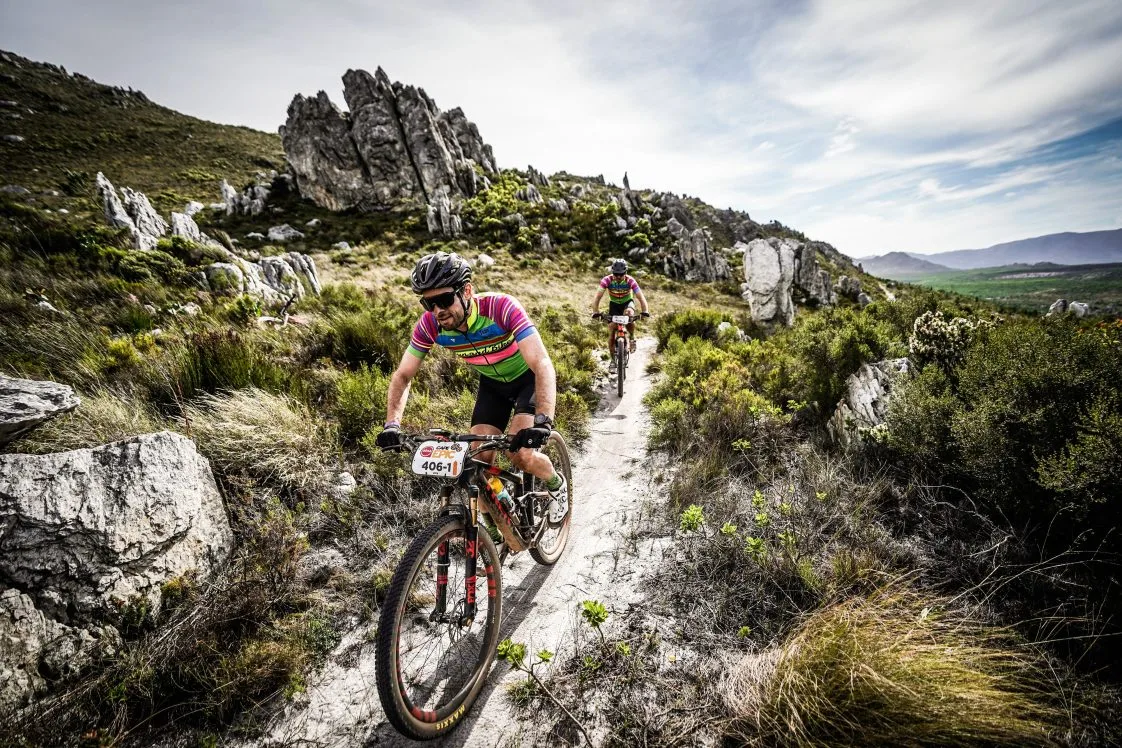
Dries De Love has served as Radial Europe’s CEO since 2019. Here we talk with him about his perspective on leadership and the art of building relationships with customers and employees.
Endurance and resilience in work and sport
Joanna: Dries, you are a seasoned executive leading Radial’s operations in Europe, but you are also an accomplished athlete. How does your sporting experiences influence your work?
Dries: I love endurance sports, which involve rigorous, daily training for one or two races a year. It has a lot in common with running logistics activities. In endurance sports, as in warehouses, nobody sees what you do. You train alone as you work in facilities without windows. It takes a lot of time and daily effort to reach a specific goal. You need to train and develop yourself as you push process improvements to gain percentages each day.
What we do in Radial is like training for an endurance race. Our everyday work in logistics often goes unnoticed, but if we constantly improve, even by just 1% daily, we will achieve long-term success.
I crashed pretty hard last year during the race. Accepting setbacks is crucial, but what matters most is the resilience to rise again and work even harder. It’s a painful journey, particularly mentally; it kills you. But it’s through these challenges that we emerge stronger and better than before.
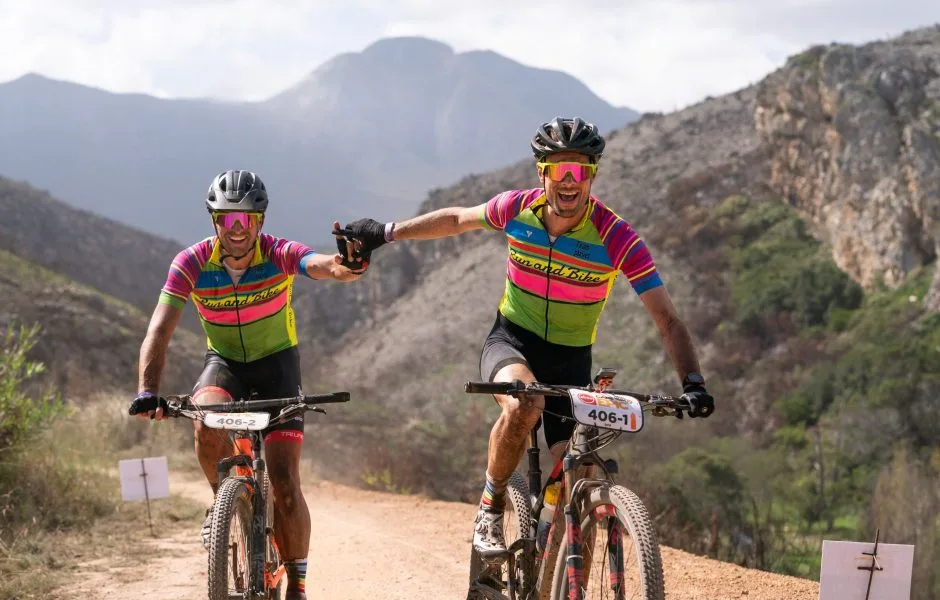
Dries (on the right) with his teammate at The Absa Cape Epic, the only eight-day mountain bike stage race classed as hors catégorie by the Union Cycliste Internationale (UCI); this official UCI status makes it a highlight on the professional racer’s calendar.
A journey of continuous improvement
Joanna: Setting goals, resilience, and facing challenges are integral to effective leadership. What does leadership mean to you?
Dries: Leadership, to me, is about setting a good example. It involves continually questioning, challenging, and improving oneself. Five years back, I wasn’t the man I am now. Five years from now, I won’t be the man I am today. Constant self-improvement is key, and making mistakes is an inherent part of the process. I encourage those who report to me to evaluate my leadership. Though it’s not always easy, I value their feedback and consider it the cornerstone of my ongoing development.
Joanna: You are strongly committed to continuous improvement. How does this dedication translate into the strategies and practices within Radial?
Dries: At Radial, we build personalised solutions and a perfect supply chain for every one of our customers, and we improve it constantly as our customers’ requirements change over time. Radial pushes the personalisation of the supply chain to the maximum. Everything we do is based on customer information. We challenge ourselves. We try to find out what our customers want and make it the basis for our improvement. And it works. We become better and better. We have continued to grow double-digit year on year since 2018. My goal for the next few years is to sustain this growth, perhaps even exceeding it.
We push the personalisation of the supply chain to the maximum, and it works. We continue to grow over 20% year on year. My goal is to sustain this double-digit growth, perhaps even exceed it.
Building trust and forging bonds
Joanna: Why do you believe companies or the individuals behind them choose to collaborate?
Dries: Companies do not work with companies; it’s people who work with people. Trust is the basis of everything. Choosing a new logistics provider is a long-term commitment, much like a marriage. You do not only sign a contract for a few years. You need to partner up in order to constantly search for improvements.
Joanna: How do you establish trust?
Dries: Allow me to illustrate with our example. Based on available information, we can develop a tailored supply chain solution for a customer within six months. However, as time progresses, we gather more insights about the customer, and we can refine and enhance our solutions further. We continuously challenge ourselves to improve and innovate. When customers perceive us as such a company, they will choose us, and we will work together.
Joanna: What sets Radial apart from other companies?
Dries: We serve people. We care about the wellbeing and development of our employees, as well as the sustainability and quality of the services we provide to our customers. Through a culture of transparent communication and active collaboration, we cultivate an environment where feedback is valued, and innovation thrives. We create value together with our clients, and our NPS confirms their satisfaction. We put the bar very high and we are steadily moving in the right direction.
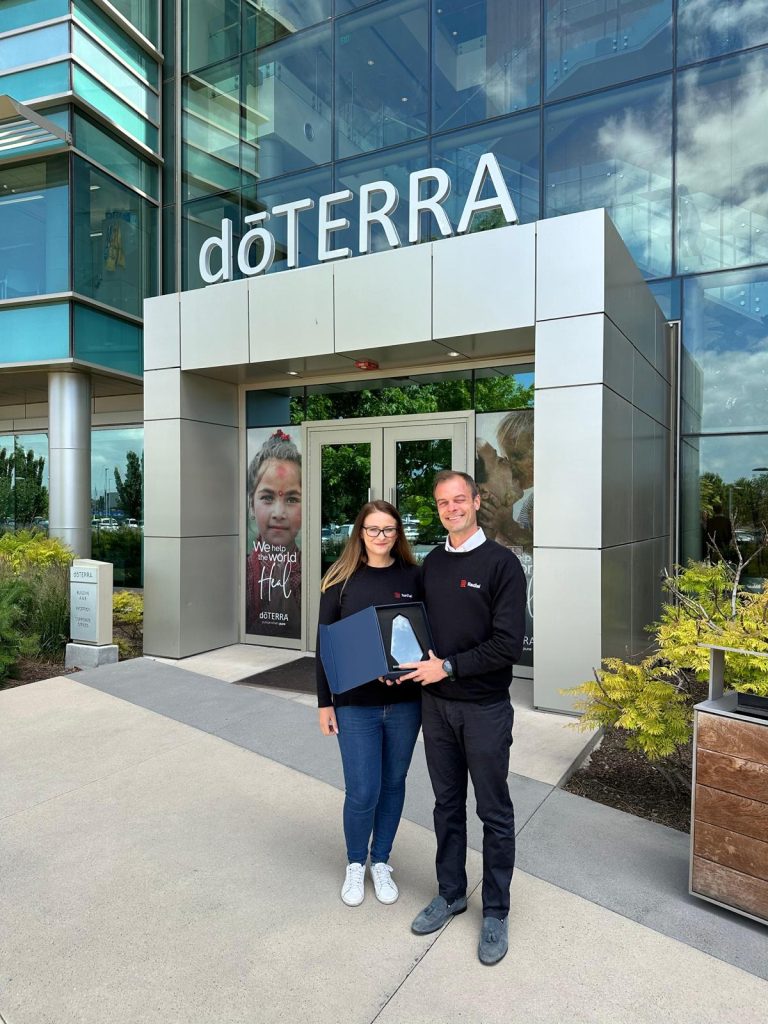
Cultivating a culture of learning
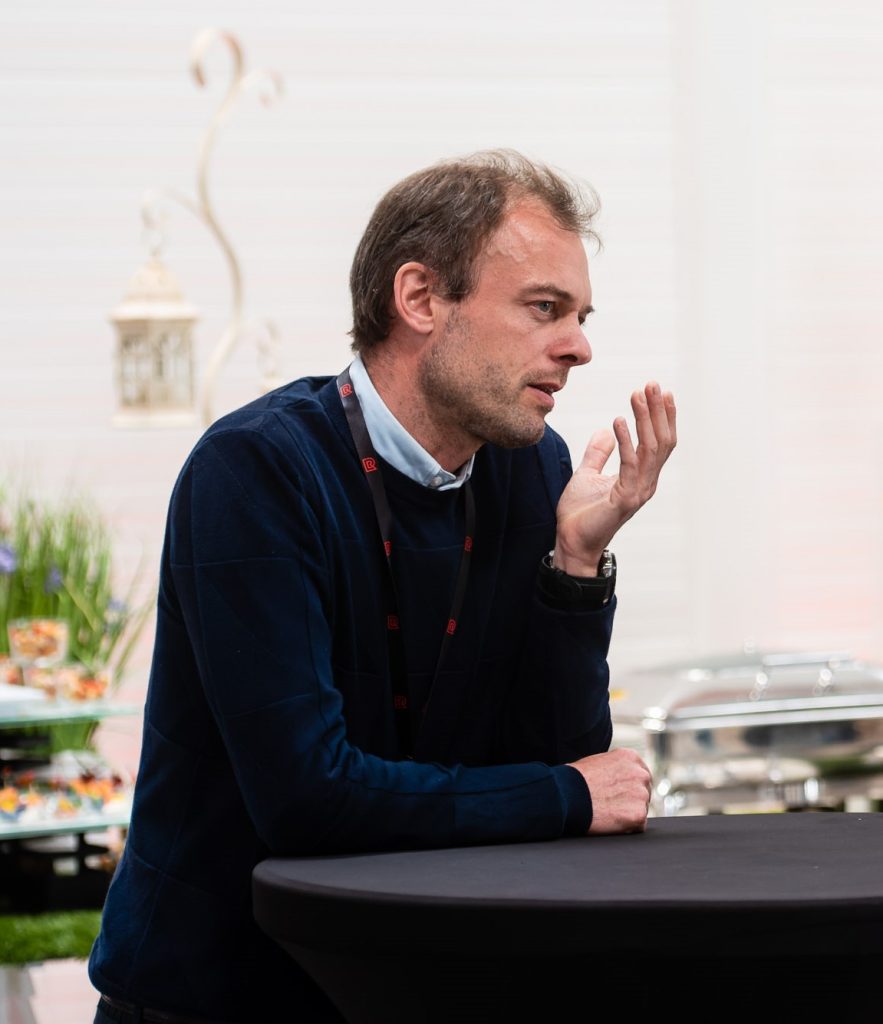
Joanna: To aim high, innovation is crucial. What does Radial do to stay an innovative company?
Dries: We allow people to make mistakes. In fact, we encourage experimentation and learning from errors. No one has ever been dismissed for making mistakes. Instead, we see them as valuable lessons to share with the team, helping us prevent future occurrences. That is the basis of an innovative mindset. Without innovation, we would not stand where we are now. Our NPS and employee engagement are outstanding. This is the key to growth. Unhappy employees are not going to deliver happy customers…
Joanna: What is the biggest challenge you have faced heading Radial Europe?
Dries: Implementing a culture of mutual care and embracing the opportunity for mistakes within an environment where the customer is the centre of everything. Today, I focus on maintaining this culture and making it the company’s backbone. We can strengthen and reinforce this message by fostering collaboration amongst our team members, making it integral to everyone’s mindset and actions.
We allow people to make mistakes. In fact, we encourage experimentation and learning from errors. That is the basis of an innovative mindset.
Fostering development and unity
Joanna: Why do you believe culture is the most important element?
Dries: Culture is, for me, essential. Anybody can invest in a warehouse and implement a WMS system, but installing a culture is an entirely different thing. In a company with more than 1000 people, I cannot make every decision. In fact, I don’t want to do it. A strong company culture empowers people to make informed decisions that are aligned with our vision. Moreover, if you make the decision, then you will support it 100%. When individuals are clear about the company’s direction, they feel confident in taking ownership of decisions.
Culture is, for me, essential. A strong culture empowers people to make informed decisions aligned with the company’s vision and feel confident in taking ownership.
Joanna: How does the company culture contribute to employee satisfaction?
Dries: If we look at our eNPS (employee happiness index), which we measure twice a year, it tells us they are happy. Secondly, people do not leave the company. The fact that many of us remain with Radial for an average of 15 years suggests that there are aspects people genuinely enjoy. I’m having fun as well. I wouldn’t work in a place where the fun factor is absent. We work hard, and we play hard. Radial’s investments and rapid growth ensure opportunities for advancement and internal promotion. Our culture encourages career development. People can explore different roles and grow within the company.
Joanna: Your description of relationships within the company resonates with family dynamics, where individuals care for each other, grow, make mistakes, have fun and form lasting bonds.
Dries: Some people call it a family, I don’t know if that is the right term. But you do see some strong connection and collaboration, and the group is strongly tied together. If you see us playing football, there’s a tangible sense of cohesion and unity. We are bound by shared values and genuine care for one another. Somebody falls. Somebody else picks him up. When we start a new operation, people from all over Europe come to help. They come because of the joy of sharing. It is not money that drives them; it is the culture.
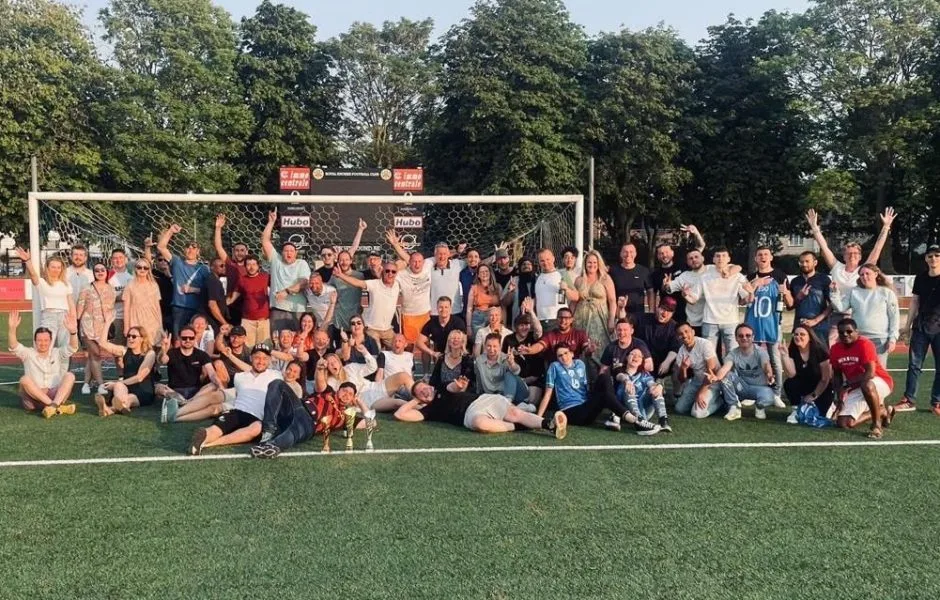
Radial’s team at the first “Radial Football Tournament”, 2023
Inspirational reads: Dries’s picks
Joanna: You recently shared with your team the book “Start with Why” by Simon Sinek, which undoubtedly impacted the business world. What other books inspire you?
Dries: I like to read books that show, via cases, the complexities of human behaviour and its influence on our world. I found “The Tipping Point” by Malcolm Gladwell particularly insightful. I came across it through the CEO of one of our valued customers. It’s about understanding why and how things happen, the influence, trends, and dynamics that cause change, the speakers and their roles and power. It inspired me, deepening my understanding of our customers’ and employees’ needs, while effectively navigating market dynamics, driving change, and fostering innovation within our organisation. You need to read it.
Joanna: Dries, thank you for sharing your thoughts on leadership, innovation and understanding human behaviour. Radial’s success thrives on its people-centric culture and dedication to continuous improvement. Your insights are a direction for companies striving for excellence in today’s dynamic landscape.
Dries De Love, Executive Vice President, Europe
Dries leads Radial’s European operations. He is responsible for fulfillment, transportation, customer care and omnichannel technology divisions. Before joining Radial, Dries led his own consultancy business, assisting leading European retailers with their logistics needs. With a wealth of fulfillment experience, Dries also held senior positions at global logistics and port operator, Katoen Natie. Dries earned a Master’s in economic studies from the EHSAL management school and a Master’s in General Management from the Vlerick Business School.
